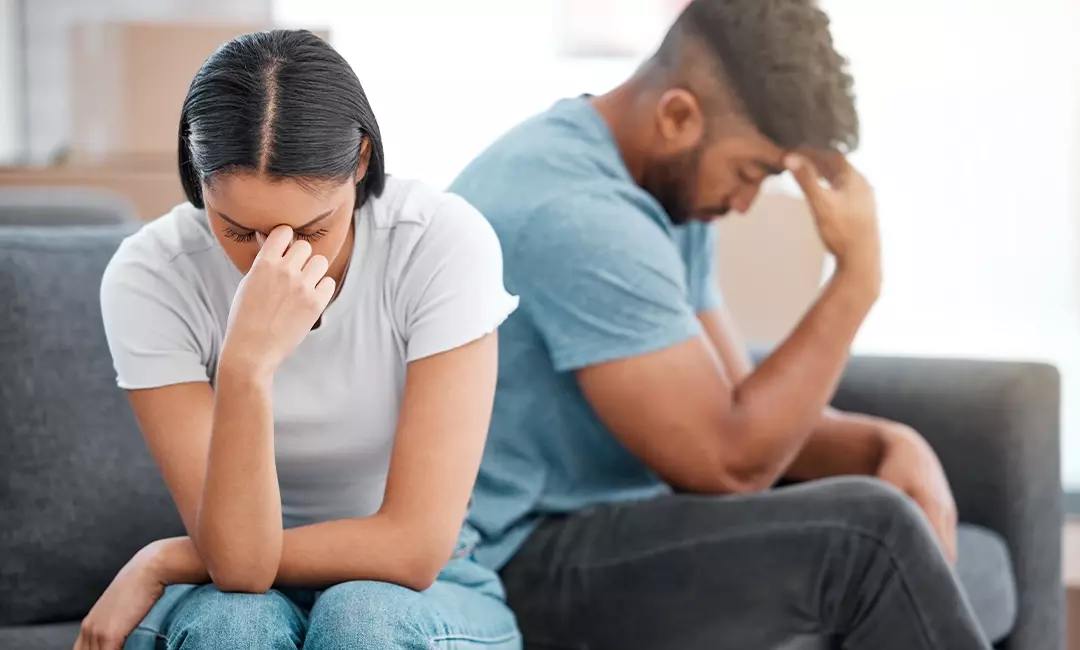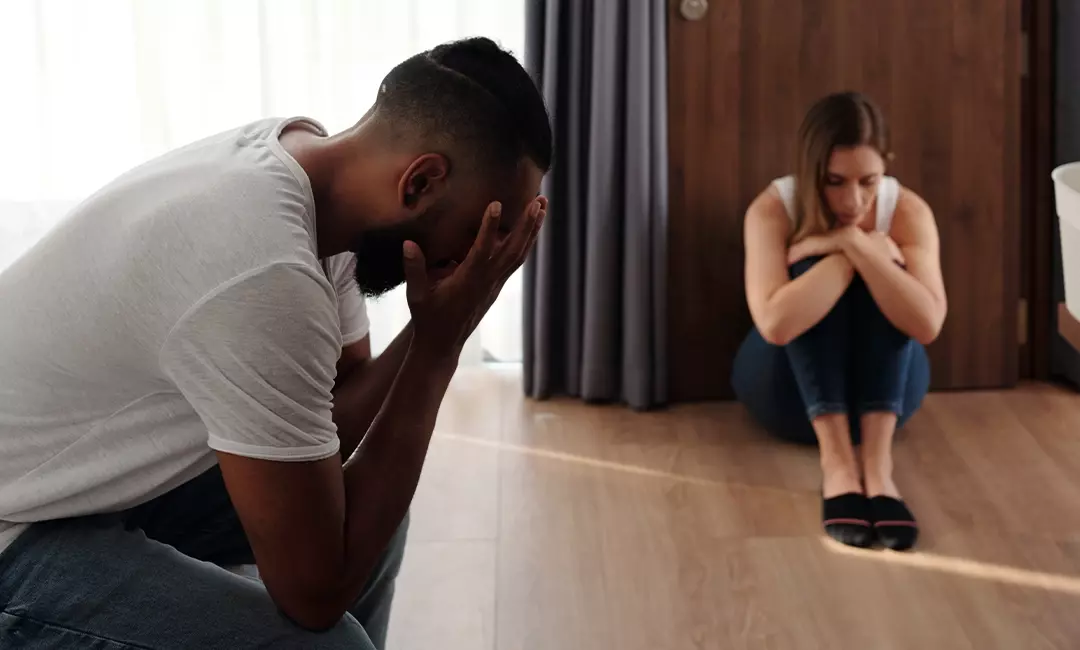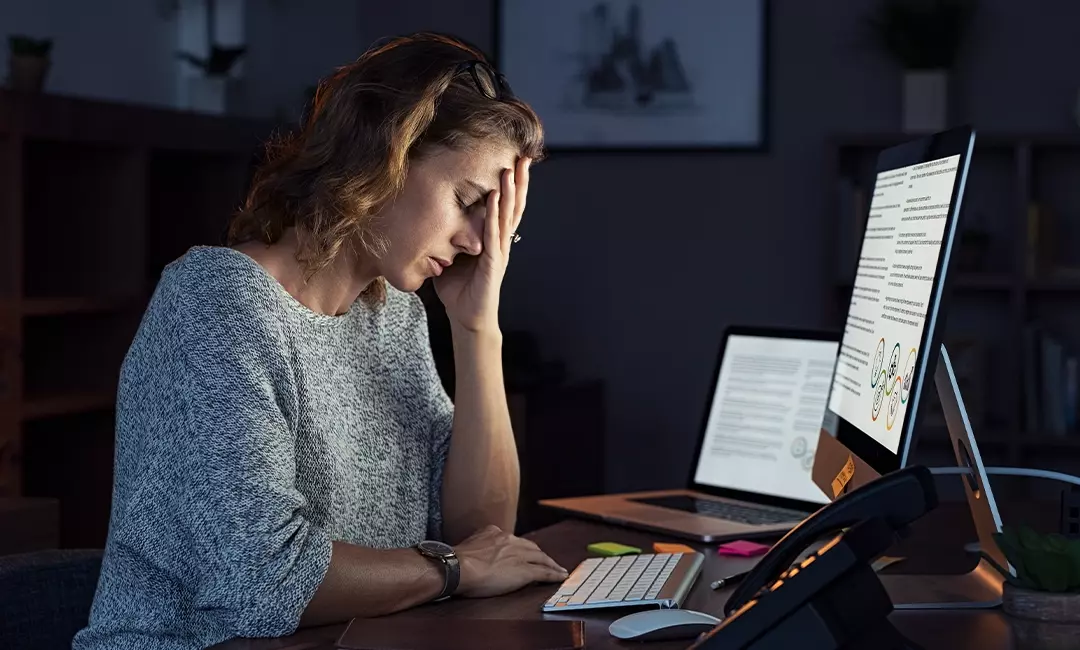Summary:
- Depression affects nearly 1 in 10 Americans, and the symptoms of depression can be debilitating.
- Depression has many signs and symptoms, which can include changes in sleep, appetite, mood, and challenges with substance use.
- Suicidal thoughts are commonly experienced by those experiencing depression. Someone having suicidal thoughts could show more interest in death, withdrawal from loved ones, or give away their important possessions.
- Therapy Utah’s trained and licensed therapists can use numerous methods and tools to help overcome depression. Contact us if you or someone you love is looking for help.
Nearly 1 in 10 Americans suffer from depression, meaning someone you know is likely to be struggling with depressive symptoms. Knowing the signs and symptoms of depression can help you and your loved ones from having to deal with depression and its potential consequences. Below, we’ll discuss common signs and symptoms of depression so you can recognize them if they appear and get help.
At Therapy Utah, we understand the complexities of depression and are invested in the healing process. Our individual therapy services can assist in overcoming the struggles associated with depression by getting to the root and finding healing.
Symptoms of Depression
Feeling sad or down is something most people experience at certain points throughout the ups and downs of life, but persistent sadness or feelings of despair may be more serious than you think.
The word ‘depression’ often gets confused with feeling down or sad. However, depression is a serious mental illness, and numerous specific symptoms affect those experiencing it. Here, we’ll go over the criteria for being diagnosed with depression to differentiate this condition from simply experiencing low mood.
How is Depression Classified?
According to the Diagnostic and Statistical Manual V (DSM-5), a person must experience five or more of the following symptoms within a 2 week period to be diagnosed with depression:
- Depressed mood or feeling sad, nearly all day everyday
- Apathy—the loss of interest or pleasure in almost all activities
- Significant unintentional weight gain/loss or increase/decrease in appetite
- Disturbed sleeping patterns—such as insomnia or hypersomnia
- Psychomotor changes (speed or intensity of body movements, facial expressions, and conscious thought processes)
- Fatigue, tiredness, or low energy resulting in a decrease of efficiency in daily routine
- Feelings of worthlessness, or excessive or delusional guilt
- Impairments of one’s ability to think, concentrate, or make decisions
- Recurring thoughts of death, suicidal ideation, or suicide attempts
Signs Someone is Struggling with Depression
If you feel like you or someone you know is struggling with depression, there are some signs you can look out for to get a clearer picture of the situation. The diagnostic criteria in the previous section often manifests in specific behavior that can signify depressive tendencies, including:
Reckless Behavior
Sometimes, people can overcompensate for their depressive moods by acting out through risky behaviors. These behaviors may present themselves in:
- Excessive drug or alcohol use
- Non-suicidal self injury, such as, cutting, burning, or scratching their skin
- Sexual pursuits that may be out of character
- Easily agitated or anger outburst
Changes in Sleep Patterns
Depression is taxing on one’s sleeping patterns and can lead to insomnia or hypersomnia. Insomnia affects sleep as it prevents someone from being able to fall asleep and stay asleep. Hypersomnia is when someone is sleeping excessively for long periods either throughout the day or night.

Apathy
Someone may be dealing with depression if they lack the motivation to do anything, or have no care for anything. Someone feeling apathetic does not typically show emotion for anything, and while this is not exclusive to depression, it can often be seen in people who no longer experience pleasure or joy from things that once produced these feelings.
Irritability or Uncontrollable Emotions
Depression is classified as a mood disorder, meaning that one’s emotions can often be affected—leading to increased bursts of anger or defensiveness. Additionally, depression can cause someone’s emotions to become dysregulated, and their emotional reactions to situations may be too high or too low.
Anxiety
Anxiety and depression can be symptoms of one another (depression may be a result of anxiety, or vice versa). When anxiety presents itself in those with depression, it may cause excessive worrying or fear that can heighten other depressive symptoms.
Low Energy
Feeling fatigued or exhausted is one of the most common signs of depression. Eating, sleeping, or exercise routines are important for energy levels, but these can all be affected by depression. When these routines are limited by depression, feeling lethargic or fatigued is often the outcome.
Low Libido
Sexual desires can fluctuate over time for most people, but due to low energy and apathy, one’s sex drive can become extremely low or non-existent when dealing with depression. Noticing these changes in romantic partners can be helpful if you already suspect they may be struggling with depression due to other symptoms.
Feelings of Worthlessness or Hopelessness
Commonly, those experiencing depression may feel worthless about themselves or hopeless about the future. These signs of depression can show up as self-loathing or low self-esteem. Listening to the way a person talks about themselves and their future can often provide key indicators that they are struggling with these feelings.
Problems Concentrating
Symptoms of depression can often be seen through changes in behaviors that require focus, concentration, or critical thinking abilities. Losing the ability to focus becomes a destructive cycle when depression is present because it can feed into the individual’s feelings of hopelessness and worthlessness, increasing their severity.
Substance Use Problems
While some people experiencing depression turn to support groups or therapy, some often use drugs or alcohol as a coping mechanism. Those experiencing depression may find themselves indulging in substances to numb the unwanted thoughts or feelings associated with their mental illness.

Physical Symptoms
Although depression is a mental disorder, it does not only impact one’s mind. Physical symptoms of depression can include chronic pain, gastrointestinal issues, psychomotor changes, and fatigue. If you notice a loved one experiencing more pain, fatigue, or changes in their body language and thought processes, it could be an indication that they are struggling with depression.
Suicidal Thoughts
Since suicide is one of the top causes of death in the United States, it can be life saving to notice how one talks about and views death if they are experiencing depression. Suicidal ideation is often linked to those experiencing mental health issues. It can often be identified and prevented when someone:
- Openly talks about and focuses on death or wanting to die
- Withdraws significantly from friends and family
- Puts noticeable effort toward planning suicide
- Gives away important possessions
If you or anyone you know is experiencing suicidal thoughts, call the Suicide & Crisis Lifeline at 988, or speak to someone through their 24-hour online chat.
How You Can Help
It’s never easy to watch someone you care for struggle with depression. Although you do not have total control over how someone else overcomes depression, there are ways you can help.
- Offer your support and encouragement: sometimes all it takes is a helping hand as a show of support to pull someone out of the trenches of depression. Expressing your concern for their well-being and offering your support can be transformative in their road to overcoming depression.
- Providing resources: some people experiencing depression may not know how or where to find the help they need. Guiding or helping someone with depression to resources such as mental health therapists or counselors could be the gentle push they need in getting treatment.
- Try to improve their daily life: while undergoing treatment for depression, such as therapy and medication, it’s extremely beneficial to have a support network. You can help improve their day-to-day experience by including them in group activities or making an effort to see them.
- Become a safe space for them: treating depression is a tough journey for many, so being a safe space for someone to talk to about how they are feeling can be a critical step in their healing. Active listening and positive support can go a long way for someone experiencing depression.

Overcome Depression with Therapy Utah
At Therapy Utah, we understand the ins and outs of depression and focus on matching you with the best therapist for your needs. If you or someone you know is struggling with depression, contact us to learn more about how our expert therapists can assist you in the healing process.










